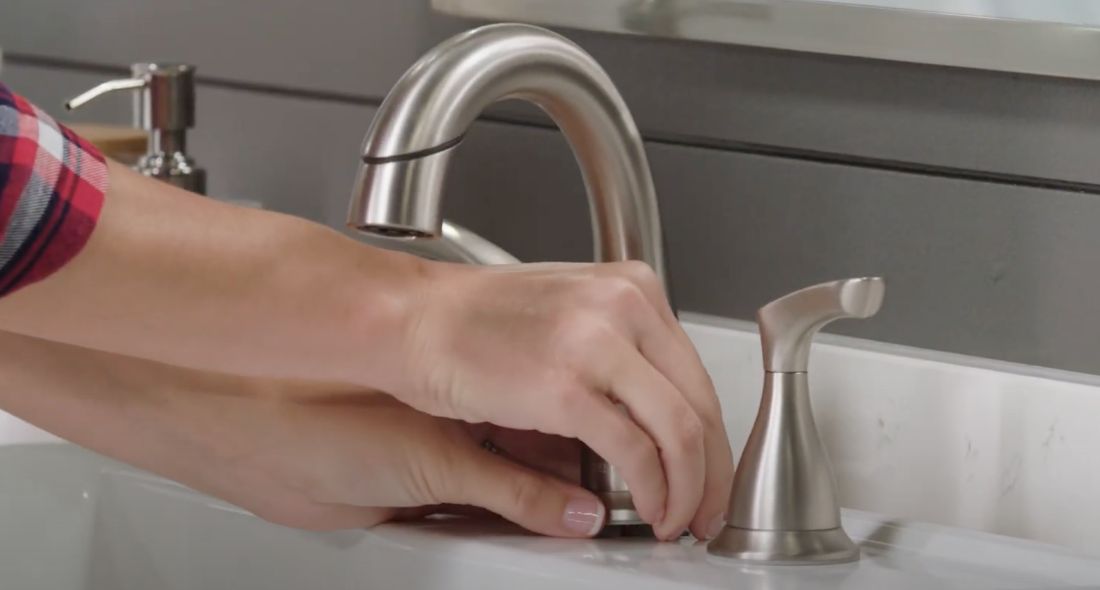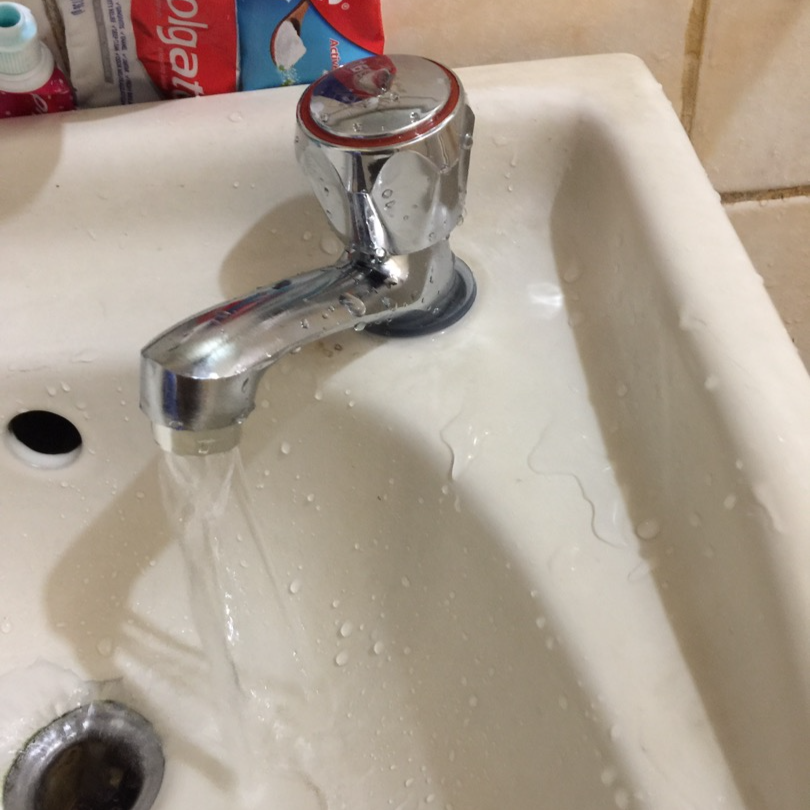Our Factors Behind Correcting a Faulty Faucet
Our Factors Behind Correcting a Faulty Faucet
Blog Article
Are you currently trying to find details about How to Fix a Dripping or Leaky Faucet ?

Trickling faucets might appear like a minor trouble, yet their influence surpasses simply the annoyance of the sound. From wasting water to incurring unneeded economic prices and wellness dangers, disregarding a trickling faucet can bring about different repercussions. In this short article, we'll delve into why it's important to address this common house problem quickly and effectively.
Wastage of Water
Ecological Effect
Dripping taps contribute significantly to water wastefulness. According to the Epa (EPA), a single tap leaking at one drip per secondly can lose more than 3,000 gallons of water annually. This not just stress water sources however additionally affects ecosystems and wildlife depending on them.
Step-by-Step Guide to Taking Care Of a Dripping Faucet
Devices Called for
Before trying to deal with a dripping faucet, collect the necessary tools, including a flexible wrench, screwdrivers, substitute parts (such as washers or cartridges), and plumber's tape.
Typical Faucet Issues and Their Solutions
Recognize the sort of tap and the specific issue triggering the drip. Typical issues include worn-out washers, corroded valve seats, or malfunctioning O-rings. Describe maker directions or on the internet tutorials for detailed advice on fixings.
Financial Prices
Raised Water Expenses
Beyond the environmental impact, trickling taps can pump up water bills substantially. The gathered wastefulness gradually translates into greater energy expenses, which can have been prevented with timely fixings.
Prospective Residential Property Damage
In addition, extended dripping can cause damage to components and surfaces bordering the faucet. Water build-up can cause discoloration, deterioration, and even architectural issues if left ignored, causing additional repair service costs.
Health and wellness Problems
Mold And Mildew and Mold Growth
The continuous visibility of dampness from a leaking faucet produces a suitable environment for mold and mildew development. These fungi not just compromise interior air quality however additionally pose health risks, especially for individuals with breathing conditions or allergies.
Waterborne Illness
Stagnant water in dripping faucets can come to be a breeding place for germs and other pathogens, increasing the threat of waterborne conditions. Pollutants such as Legionella germs thrive in stationary water, possibly resulting in serious ailments when consumed or inhaled.
Do it yourself vs. Expert Repair
Benefits and drawbacks of DIY Fixing
While some may attempt to take care of a dripping tap themselves, DIY repair services come with their very own collection of difficulties. Without correct knowledge and devices, DIY attempts can aggravate the issue or lead to incomplete repair services, prolonging the issue.
Advantages of Working With a Professional Plumber
Employing an expert plumber makes certain that the underlying cause of the dripping faucet is attended to properly. Plumbers possess the knowledge and devices to diagnose and repair faucet issues efficiently, saving time and minimizing the threat of more damages.
Ecological Obligation
Private Contribution to Conservation
Taking responsibility for fixing trickling taps lines up with broader initiatives toward water conservation and ecological sustainability. Every individual's actions jointly make a considerable impact on maintaining valuable resources.
Lasting Living Practices
By prioritizing prompt repair services and embracing water-saving behaviors, individuals add to sustainable living techniques that profit both present and future generations.
Safety nets
Routine Upkeep Tips
To prevent trickling faucets, carry out regular maintenance such as cleaning up aerators, inspecting for leaks, and changing damaged parts immediately. In addition, consider setting up water-saving devices or upgrading to extra efficient fixtures.
Relevance of Prompt Repairs
Addressing leaking faucets as soon as they're discovered avoids further water wastage and potential damage, inevitably conserving both water and cash over time.
Impact on Property Worth
Understanding of Well-Maintained Home
Maintaining a residential property in good condition, including resolving upkeep issues like leaking faucets, improves its perceived worth and desirability amongst potential purchasers or renters.
Impact on Resale Value
Properties with well-kept plumbing components, including taps, command greater resale values in the realty market. Resolving dripping faucets can contribute to a favorable impact during home assessments and arrangements.
Final thought
Attending to a trickling tap surpasses plain ease; it's an essential step toward conserving water, reducing financial prices, and guarding wellness and property. Whether via do it yourself repair services or specialist help, acting to fix trickling taps is a small yet impactful way to advertise responsible stewardship of sources and add to a healthier, extra sustainable future.
How to Fix a Leaky Faucet: Step-by-Step Repair Guide
A leaky faucet may seem like a simple annoyance, but if it's not fixed promptly, that leak could cost hundreds to potentially thousands. From water damage to mold, mildew, and high water bills, even a tiny leak can be catastrophic if left unattended. Damage like this can even affect the overall value of your home, so it's important to take the right approach for leaky faucet repair. You may need the help of a plumber in some cases, but we've got a few tips you can try on how to fix a leaky faucet before calling the pros.
Four Faucet Types
When you're learning how to fix a leaky faucet, the first step is knowing what kind of faucet you're working with! There are four common types.
Cartridge Faucets
Cartridge faucets come in one- or two-handled varieties. In one-handled cartridge faucets, hot and cold water combines in a single cartridge. In the two-handled versions, hot and cold water are controlled separately and mixed in the faucet.
Ball Faucets
Ball faucets have a single lever you push up and down to adjust the pressure and rotate to change the temperature. A slotted metal ball controls the amount of water allowed into the spout.
Compression Washer Faucets
They're the oldest type of faucet, but they're still used in many homes — especially older ones. Compression faucets have two separate handles that, when turned, raise or lower the washer that seals a water valve. This valve stops water from flowing through the faucet when it is turned off.
Disc Faucets
Disc faucets rarely need to be repaired due to their maintenance-free design. The water flow is controlled by two discs — the upper one raises and lowers against a fixed lower disc, creating a watertight seal. If your disc faucet starts leaking, you may need to replace the seals or clean residue buildup from the inlets.
Fixing a Leaky Faucet
Step 1: Turn Off the Water
Whether you're learning how to fix a leaky bathtub faucet or how to fix a leaky kitchen faucet, always turn off the water supply to your working area when you're fixing a leak. The last thing you want is a flood added to your list of things to fix.
Look for the shutoff valves below your sink or around the tub and turn them clockwise to stop the water flow. If your faucet doesn't have shutoff valves, you may need to turn off the water for the whole house. Check to make sure it's off by turning the faucet on. If nothing comes out, you're ready to start the repair.
Step 2: Take Apart the Faucet
How you disassemble your faucet depends on the type of fixture you have. You can use a flathead screwdriver to remove the caps on top of the handle or handles for cartridge and compression faucets. Inside, you should see handle screws. Unscrew these with a screwdriver to remove the handle.
Disc- and ball-style faucets will typically have an inlet screw near the handle, and removing that will reveal the interior of the faucet.
Detach the Valve Stem
For cartridge- and compression-style faucets, you'll see the inner valve stem or cartridge once you remove the faucet handles. If you have a compression faucet, unscrew the brass valve stem. If you have a cartridge faucet, pull out the cartridge. If your cartridge has been in place for a while, it may require some tools or extra force to remove it due to mineral deposits.
Examine and Replace Parts
Once you've removed the parts, check them out to confirm what needs to be replaced. You may see corroded rubber washers, O-rings, stems, or cartridges. On a ball-style faucet, check the seats and springs for damage.
If you need to repair a leaky disc faucet, check the inlet and seals on the lower disc.
Once you determine what parts must be replaced, visit your local hardware store. Bring the damaged parts with you to ensure you can purchase the correct components to replace them.
Clean Valves and Faucet Cavity
If you've removed a stem or cartridge, you may notice mineral buildup in the faucet's threads. Use white vinegar to clean the valve seat by soaking it for a few minutes, then scrub it away with a soft toothbrush and rinse with warm water. You can also clean the interior of the faucet in the same way.
Reassemble the Faucet
Once your faucet is cleaned and the required parts have been replaced, it's time to reassemble it. Put the pieces back together and slowly turn the water supply back on. Doing this slowly is crucial because too much initial water pressure can damage the new hardware you've just installed.
https://homewarranty.firstam.com/blog/how-to-fix-leaky-faucet

Do you like reading up on Why Is It Important To Fix Your Leaking Tap/Faucet?? Write a remark below. We would be glad to see your feelings about this article. In hopes to see you back again soon. Sharing is good. You won't know, you will be helping someone out. Thanks a lot for going through it.
Report this page